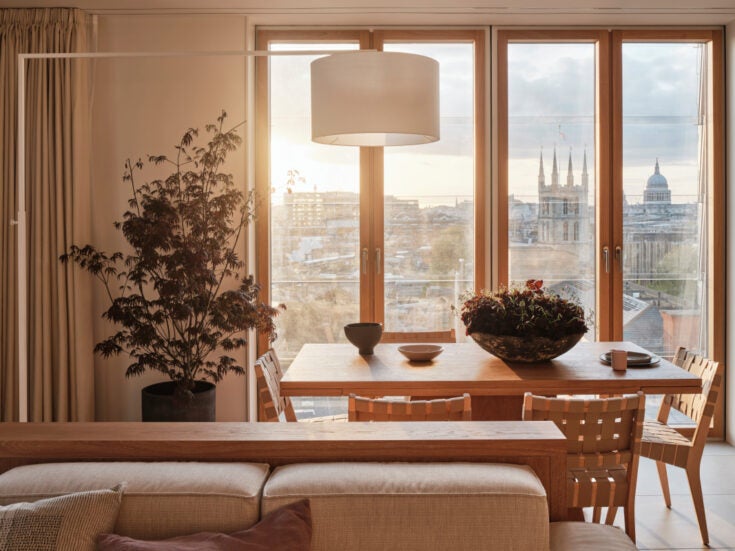
HNWs return from mock-Tudor mansions in the suburbs to the commercial heart of London. Ross Clark investigates
It wasn’t so long ago that planners used to be troubled by the lack of activity in city centres during the evening, after commuters had returned to the suburbs. Why, asked Westminster councillors in the 1970s, don’t we encourage people back to live in the centre of London by allowing more homes to be built, to prevent parts of the borough becoming a commercial monoculture of shops and offices?
The policy succeeded beyond their wildest imaginings. Look around the centre of London today and you see one crane after another, many of them putting up great flights of posh apartments. Nothing demonstrates the trend better than Centre Point, an unloved 33-storey office block now being converted into upmarket flats, with an average price of £3.2 million.
City centre living has become fashionable again. It is convenient, stylish and appeals especially to the footloose super-rich who are never in one place for long and don’t want to own hard-to-maintain houses. The wealthy have returned from their mock-Tudor piles fringing suburban golf courses to locations close to where they work and like to be entertained.
But is the rush to turn office space into living space itself causing problems, threatening to hollow out the commercial heart of London? The same Westminster Council which set out to attract residents back to the heart of the city in the 1970s is now fretting that the transformation has gone too far and is costing the borough jobs. In the fifteen years to 2010, Westminster gained 4.1 million square feet of office space; in the ensuing four years it lost 1.8 million square feet. Over the same period 1,278 new homes were built.
The transformation, calculates Westminster, has cost the borough 11,500 jobs in five years. Office-to-residential conversions currently under construction, it says, will cost a further 11,000 jobs, and schemes which have already been given planning permission will cost 12,500 more.
Hence there is suddenly a lot of backpedalling. Development policies in the borough are being rewritten to favour the retention of office space. The trouble is, nationally, policy is going in the opposite direction. In May 2013 the then communities secretary Eric Pickles changed the rules so that developers wanting to turn office space into residential space no longer needed full planning permission.
The theory was that it would help to ease the housing crisis. But with residential space generally being higher in value than office space, developers eagerly took up the invitation, precipitating a commercial property crisis.
While many parts of London were exempted, some of those which were not saw a rush of activity. Camden Council tried to block an attempt to turn 23 offices in Utopia Village into 53 flats by claiming the conversion would infringe the human rights of people who lived in adjoining properties, on the grounds that the new flats would overlook their windows. It lost.
Business rates have until now encouraged office-to-residential conversion. A council granting planning permission for offices has had to watch as revenues from business rates are spirited away by central government.
Grant planning permission for homes, on the other hand, and the council tax revenues stay with the borough. That, however, is about to change: George Osborne has announced that in future councils will be allowed to keep revenue from business rates.
There is an argument, though, which says maybe we shouldn’t worry too much when developers want to turn offices into flats. When residential values exceed those of offices it is perhaps a sign the market is trying to tell you something: there is an acute shortage of homes. It makes for more efficient use of space, surely, when building space is allowed to switch its use depending on the economic cycle and other economic pressures.
Is there really that much difference between offices and flats in any case? Now that so many of us work at home — 4.2 million, or 13.9 per cent of the British population, according to the Office of National Statistics — home has become office and office has become home. There is little point in planners trying to thwart this trend, so why get too upset when the required balance of office space to residential space changes?
It may be, all you Westminster councillors, that in some of those flats which you claim are destroying local jobs there are people beavering away on their iPads generating economic activity. Let’s stop worrying about the lack of brass plaques and embrace new ways of working.






